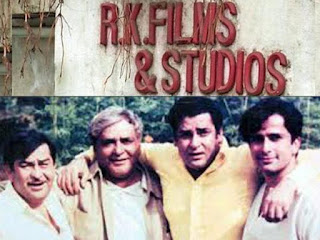Can you imagine a film with Dev Anand without singing a song in that film? Songs were always an integral part of his personality. Could you believe that he got to sing very few songs in his early films? Maybe it was a trend in those days but the heroines got all the songs. Between 1946 to 1952 he had 28 films but there were hardly a few noteworthy songs for him. Even in his debut production’Afsar’ he had no song. A film like ‘Aaram’ which had such good songs, one song -Shukriya ai pyar tera shukriya’ was filmed on Talat Mehmood himself and another great song ‘Ai jaane jigar’ sung by Mukesh was lip synced by Prem Nath. In another film, Manmohan Krishna playing a sidekick of Dev Anand had two good songs while Dev had none. Even in ‘Milap’ directed by his close friend Raj Khosla the Hemant Kumar song Yeh baharon ka samaan filmed on Dev Anand is edited out in the film while the female version is there. It was only, later on, say after 1955 that he got to sing many songs and he developed his signature style in song picturisations.
It is also seen that the majority of the songs from his movies are lip-synced by him. A solo or a duet – but Dev Anand got to lip sync even if it was a word or 2.He even appear in the frame whether he has no line to lip sync.
In this Blog I have selected those songs where Dev Anand is in the same frame with his co-actor but not lip syncing.
The first song in my list is from CID (1956), the song is Boojh Mera Kya Naam Re
It is a complete village belle song but wouldn’t be complete without Dev Anand. He just smiles throughout the song and that makes the song so much more charming!!
Song of CID (1956)
In this song from House No 44 released in 1955,Dev Anand is a part of the song even if he is just humming. Like in Peechhe peechhe aakar all he does is just hmm hmm hmm hmm.
Song of House No 44 (1955)
The next song is Hum Jaan Gaye Sarkar Tum Lakh Karo Inkaar from the film Love Marriage (1959), here Mala Sinha is all delighted to tease Dev Anand. Insisting that he’s in love and Dev Anand like an innocent boy keeps denying.
Song of Love Marriage (1959)
Another song in my list is from Bombai Ka Babu 1960, in this song Suchitra Sen is singing and dancing with her friends but Dev Anand appears on full frame.
Song of Bombai Ka Babu 1960,
In this song, Waheeda Rehman teasing Dev Anand while he is sulking. But we’re treated with a charming Dev smile by the end of the song.
Song of Kala Bazar 1960,
In the song, Aaj Phir Jeene Ki Tamanna Hai from Guide Waheeda Rehman sings a solo but it will be incomplete without the caring and charming yet a silent guide beside her.
Song of Guide 1965
Honthon pe aisi baat is an all Vyjayantimala song, but here too Dev Anand gets to sing that inimitable call O Shalooooo.
Song of Jewel Thief 1967
JAISE RADHA NE MALA JAPI SHYAM from Tere Mere Sapne 1971 is one such song ia a heroine song but Dev Annand in full frame
Song of Tere Mere Sapne 1971
Koi Koi Raat Aisi Hoti Hai from the film is one such song where heroine Rakhi is singing a solo song but Dev Anand is shown in full frame even his photograph is shown in full frame.
Song of Banarsi Babu 1973
Lootmar, the 1980 film where a cabaret was picturised on Simple Kapadia, the song
Jab Chaye Mera Jadoo-Koi Bach Na Paye here also Dev Anand appears on full frame
Song of Lootmar 1980




















